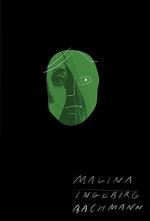|
This section contains 693 words (approx. 2 pages at 400 words per page) |

|
Malina Summary & Study Guide Description
Malina Summary & Study Guide includes comprehensive information and analysis to help you understand the book. This study guide contains the following sections:
This detailed literature summary also contains Quotes and a Free Quiz on Malina by Ingeborg Bachmann.
The following version of this book was used to create the guide: Bachmann, Ingeborg. Malina. New Directions, 2019.
Ingeborg Bachmann's novel Malina is written from the first person point of view of an unnamed female narrator. The narrative is written in the present tense, and defies conventional notions of plot, structure, and style. The following summary adheres to a more linear, and traditional mode of explanation.
In "The Cast," the first person narrator introduces the main characters of her story as Ivan, Malina, Béla, András, and herself. She offers descriptions of each character, and then identifies the time and place in which the story occurs as "Today" and "Vienna" (4). Despite the narrator's determination to adhere to a conventional form at the start of the narrative, she soon veers into lengthy musings about her fraught relationship with time, and the city in which she lives. She then discusses her relationship with Malina, recalling all of their first meetings. She decides by the end of the section that she has no interest in talking, or in remembering anything from her past.
In "Happy with Ivan," the narrator offers descriptions of her relationship with Ivan. Though she lives in an apartment with Malina, she continues seeing Ivan. Both men know about each other, but the narrator does everything in her power to keep them apart.
Over the course of her relationship with Ivan, the narrator has convinced herself that he is her savior, her reality, and her future. However, the narrator spends most of her time sitting at home, smoking, and waiting for Ivan to contact her. She is grateful for the telephone, because she sees it as one of the only things that grounds her. Whenever Ivan does call the narrator, their phone conversations are fractured or incomprehensible.
When Ivan and the narrator spend time together, they drink whiskey and play chess. The narrator is attempting to ignore or reconcile herself with the way Ivan wants their relationship to work. He has a particular set of rules he demands the narrator follow, which frustrates her. He also never asks her about herself, or allows her to speak the way she wants. Despite these difficulties, she knows she cannot live without him.
When summer comes, both Malina and Ivan leave Vienna. Feeling lonely and miserable, the narrator ventures to Salzburg to visit friends. Parts of the trip are enjoyable, but the more time the narrator spends away from home, the more distressed she becomes. On her way back to Vienna, she feels increasingly distraught, convinced she is losing her mind.
In "The Third Man," the narrator decides to restart her account. In this version, she will tell Malina everything. Most of what she will tell him, she decides, will be her dreams.
The narrator dreams about war, violence, and murder. In her dreams, her father is a violent aggressor. He chases her, tries killing her, and locks her in houses, prisons, and gas chambers. The narrator sporadically wakes from the dreams, calling out to Malina. Malina holds and comforts her. Then the two sit together and discuss the dreams. Malina is receptive to these conversations in the beginning. With time, however, his patience frays. He distrusts the narrator's accounts, and believes her imagination has gotten out of control. By the end of the section, the narrator and Malina decide that the only true thing is that there will always be violence and war.
In "Last Things," the narrator returns to her normal activities, musing on politics, reading mystery novels, writing, and composing letters she will never send. She continues conversing with Malina, and trying to maintain her relationship with Ivan. By the end of the section, however, her psychological and emotional states fracture once more. She realizes that life has grown too unbearable for her. She writes a series of letters to her lawyer about her disappearance, then hides them. After making Malina his coffee, she slips into a crack in the wall. Through the crack she watches as Malina talks to Ivan on the phone, telling him that no one by the narrator's name has ever lived in the apartment.
Read more from the Study Guide
|
This section contains 693 words (approx. 2 pages at 400 words per page) |

|



